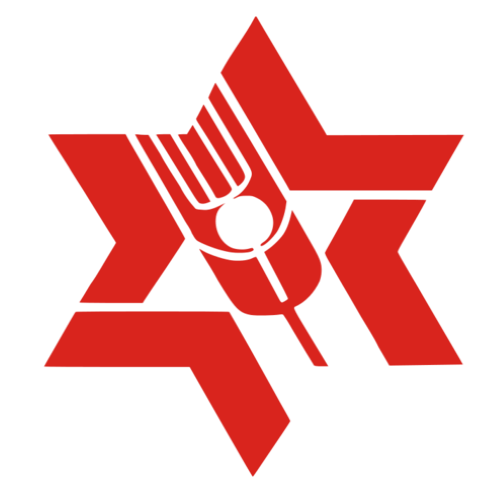By Michael Bricker, Shichvat Gal-Eyal, HDOZ Ken Perth
Over the past two months, I’ve witnessed my small Jewish community process shared trauma together, and it has been one of the most beautiful things I have ever seen. Growing up in Perth, large Jewish community events (celebratory or in solidarity) have been few and far between. For context, we are about 4,000 Jews spread out across the already sparse state of Western Australia. The Monday after the 7th, I saw over 300 people attending a community vigil at our only Jewish school. On Wednesday, I saw over 500 people attend a solidarity event at one of our shules. In the latter, the shule was filled to the brim such that extra seating had to be created outside, along with a projected livestream of the proceedings. This, by Perth standards, is extraordinary. These have been some of the largest community events that I have ever been part of.
The most culturally significant moments of the Jewish people exist predominantly in the face of shared trauma and antisemitism. I see this in my community, and I secretly loathe this. Over the past two months I’ve seen hundreds more people at shule, at protests, at community rallies, than I have ever seen in the ‘antisemitism off-season’. Where is our community when we celebrate Judaism? Where is our community when we celebrate Israel?
We Jews define ourselves too much by our opposition.
The Zionist Federation of Australia (ZFA), and the Australasian Union of Jewish Students (AUJS) recently conducted a nationwide survey of Australian Jewish Students entitled the ‘Jewish University Experience Survey’. It found that 64% of Jewish students have experienced antisemitism at university. This is a shocking statistic. The report goes on to list more and more statistics and testimony, describing the despicable life of anxiety, intimidation, and concealment that a Jew at university should expect to experience.
Just as a Jewish University Student can expect to experience such hatred, they also should expect to attend political training seminars, participate in ‘combating antisemitism workshops’ and learn how to dogmatically refute arguments in order to be healthy representatives of Israel and the Jewish people.
And I secretly loathe this. What else is there for that group of Jews we lose every year, who graduate from their private Jewish day-school (or other) and trade their Judaism for whiteness in order to get ahead, to succeed? In this process, they lose themselves, and we, as a people, lose them. Their Jewish identity becomes increasingly small, and is concentrated into a defensive impulse. The more our identity is essentialised into easily defensible fragments - combative replies to Anti-Semetic and Anti-Zionist dogmatisms - the more we lose sight of exactly what it is we are defending. This is not sustainable. From this, our Jewish identity recedes. The Jewish experience isn’t and shouldn’t be all about antisemitism.
What do we as Habonim Dror have to say about this? What does Habo Zionism have to say about antisemitism that’s increasing around the world?
Whilst the largest and strongest Jewish community spaces operate primarily in reaction to antisemitism, the impetus is on us, the builders of freedom, to create strong, culturally Jewish spaces that exist despite antisemitism. Habo’s goal right now should not be ‘combatting antisemitism’; rather, it should be to help our community members make their Jewish identity a beautiful, joyous, and significant part of their lives – one that is worth celebration. This is not a call for a radical shift in movement direction, or a waking up of something that has gone dormant, rather, this is a plea to all of you to re-centre your personal aims of being in the movement. Especially now after October 7, there is a vacuum of empowering spaces that are centered around increasing the vigor of our Jewish Identities, particularly for secular, traditional, non-practicing Jews.
Arming the Jewish youth with tools to defend themselves is important, there’s no doubt about this, but it won’t stop them from hiding their identities. Reactive approaches alone leave us scared and defensive. We are responsible for enabling and shaping the ‘Jewish University Experience’ – and the Jewish experience as a whole – in whatever way we see fit. I urge you to try as hard as you can to make it less daunting, and somehow turn it into something exciting and beautiful, something our chanichimot can look forward to, feel safe in, and be empowered by.
There is also something to be said about what change is most accessible right now. Every Zionist needs to encounter this on a personal level. We need to accept what and who we are directly responsible for. We need to ask ourselves what we do and don’t have control over. In response to the war, and more broadly, we are entirely free to be absent, to participate, or stand affirmably at the center of our communities’ response. The degree to which you utilise the opportunities most accessible to you right now to guide your community and the Jewish people in a positive direction is the actualisation of Zionism.
In Habo, a 20-something year old, who otherwise would have spent her summer in Bali, could end up creating a ruach dance that catches on to Jewish day schools across Australia, creating not only lasting memories and a cultural element for our chanichimot, but making a Jewish young adult feel as if she can change the world. Although slightly less sexy than going to Israel and joining the army, this is the change that we need right now.
This starts now, with your chanichimot, in your kenim, in your country.
“We must enhance the light, not fight the darkness.” – A.D. Gordon

